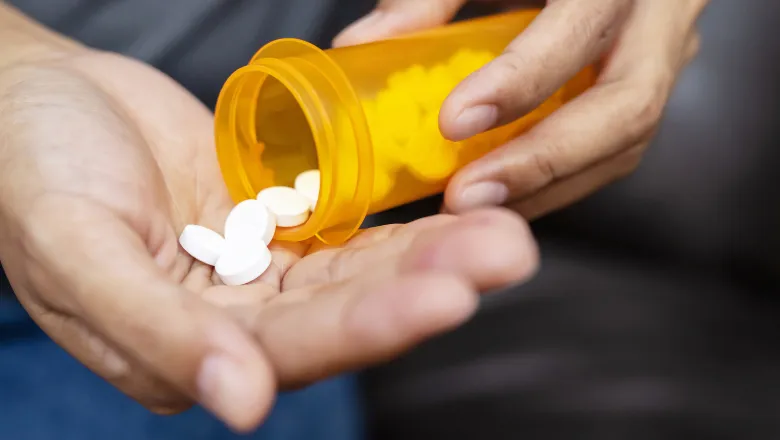Oral administration of drugs is the most acceptable, convenient, and usually the cheapest way to take medicines as it doesn’t rely on healthcare professionals. The ability to deliver ‘biological’ drugs, such as RNA therapies, is often regarded as the ‘holy grail’ of drug delivery but has remained a stubborn challenge. This study is significant as it suggests oral delivery of RNA drugs using technology based on milk EVs may be possible."
Senior Lecturer in Pharmaceutics, School of Cancer & Pharmaceutical Sciences
24 April 2024
Cows' milk particles used for effective oral delivery of drugs
New research has found that tiny particles present in cows’ milk could offer, for the first time, an effective method for the oral delivery of RNA drugs.

Ribonucleic acid (RNA) therapies are a powerful new class of drugs that offer a way to target previously untreatable diseases on a molecular level. They are based on nucleic acids, which is a component of our DNA. While they can be effectively delivered by injection, such as with the Covid-19 mRNA vaccine, so far there has been no successful way to deliver them orally as the drugs are destroyed by the harsh conditions of the gut.
In a new study published in the Journal of Nanobiotechnology, Dr Driton Vllasaliu found that tiny particles in cows’ milk called extracellular vesicles (EVs) could effectively protect and deliver RNA drugs following oral administration.
He added: “This could lead to the disruptive and sustainable manufacturing of affordable and accessible oral nucleic acid therapies for a plethora of diseases, leading to great societal impacts.”
EVs are nanoscale transporters that carry biological molecules throughout the body in a protective coat, controlling and regulating the access of molecules into cells. While EVs have been investigated extensively for drug delivery, the use of milk EVs for oral delivery of RNA drugs has not been widely reported. However, milk EVs are naturally suited for gut uptake as it is thought that these systems evolved as a means for the transfer of biological molecules from mother to child.
After extracting the EVs from cows’ milk, Dr Vllasaliu and his collaborators loaded them with RNA molecules to treat inflammatory bowel disease (IBD). The EVs were able to transport the therapeutic RNA molecules across the gut barrier in advanced laboratory models of the human intestine. In animal studies (mice), the RNA-loaded milk EVs reduced IBD-related inflammation.
These results demonstrate the method as a proof-of-concept success with RNA-based therapies for the first time. RNA-based therapies are a new therapeutic method that has already had a significant impact in the medical world, most notably with the Covid-19 mRNA vaccine.
RNA therapies work by influencing the production of proteins. They can block the production of harmful proteins that cause diseases or encourage the production of proteins that are missing or deficient in the body. For example, the Covid-19 vaccine provides mRNA, which subsequently produces a specific protein to immune cells that stimulates the production of antibodies against the virus.
Although the study utilised IBD as a disease, it is thought that, following oral administration, milk EVs are capable of delivering RNA payloads to the bloodstream. This would open the doors for the oral administration of RNA therapies for an incredibly broad range of diseases including heart diseases, diabetes, vaccines against other viral infections, and much more. The use of milk EVs is a safe method of drug delivery as many people are already regularly exposed to these. Importantly, unlike synthetic nanoparticles currently used for RNA delivery (by injection), milk EVs are thought to not trigger responses by the immune system which lead to adverse effects.
Dr Vllasaliu was recently awarded a £1.4m UKRI grant to advance the work on oral delivery of RNA therapies using milk EVs, with a focus on investigating an effective and scalable method of loading RNA molecules into EVs without damaging them.

